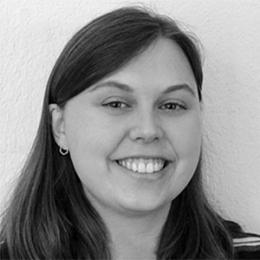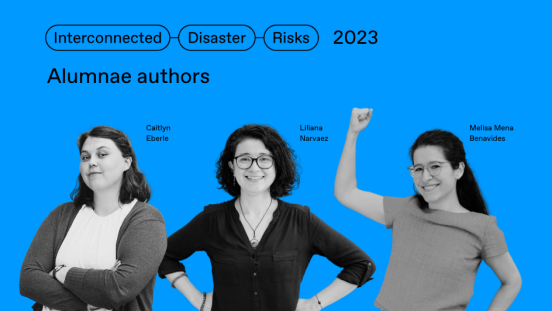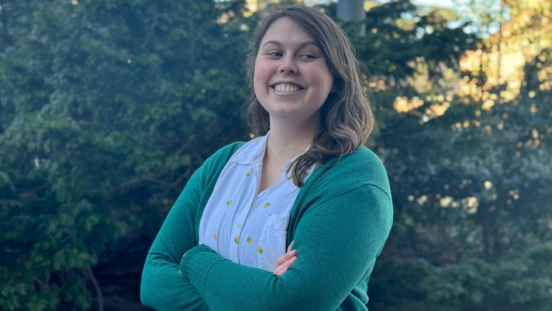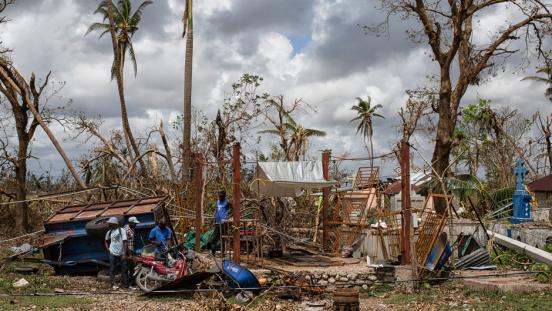Caitlyn Eberle is a research associate and one of the lead authors of the Interconnected Risks report, UNU-EHS's annual flagship publication
Caitlyn has a background in anthropology, and is interested in values and value systems across cultures, especially in relation to non-economic loss and damage. Stemming from her work on the Interconnected Risks report, Caitlyn is also interested in researching the social construction of disasters and using systems thinking to conduct forensic investigations of disasters. During her studies, she also worked as an intern in the Environmental Governance section of the Deutsches Institut für Entwicklungspolitik, primarily researching investments in social protection mechanisms from global climate funds.
Among other positions, Caitlyn has previously worked as a sustainability intern for Johnson County Community College, where she focused on composting food waste on campus and assisted in researching infrastructure impacts on wildlife. She has also volunteered for the North American and Abu Dhabi Solar Challenges, both cross-country solar car races, as well as in Bluefields, Jamaica and Guadalajara, Mexico, assisting in building community-led solar-powered water systems. Caitlyn also works as a beekeeper on her grandparents’ farm in rural Missouri.




